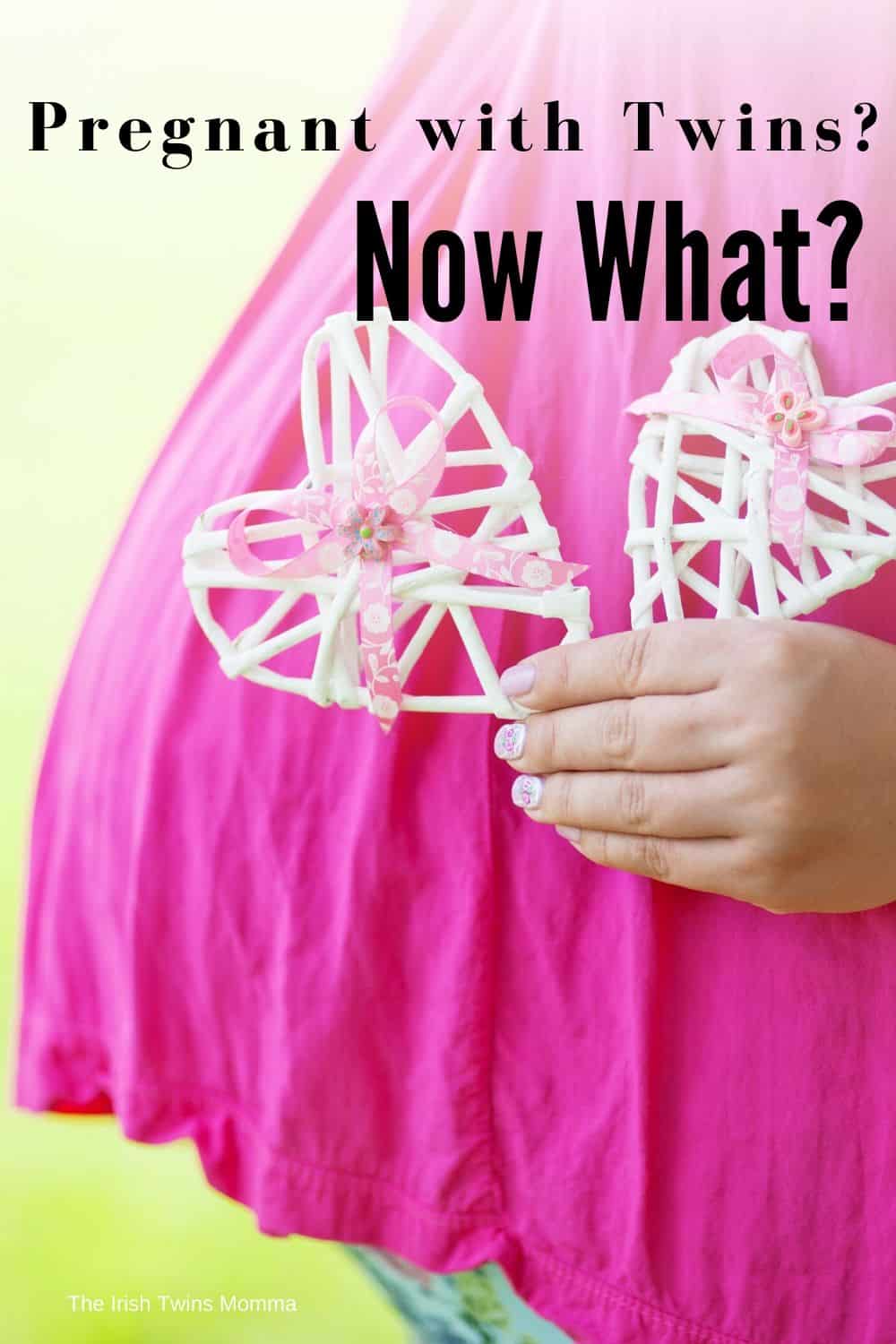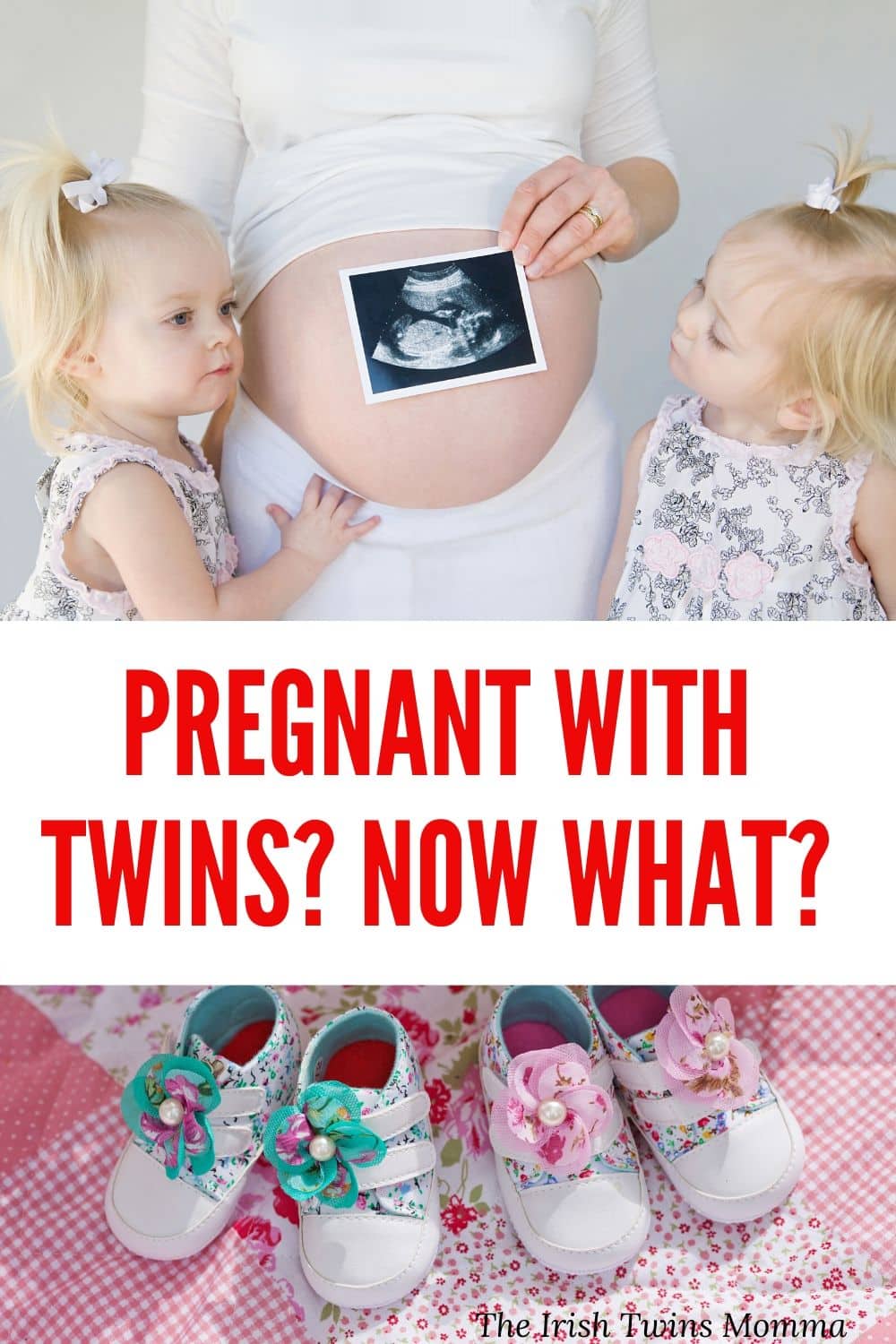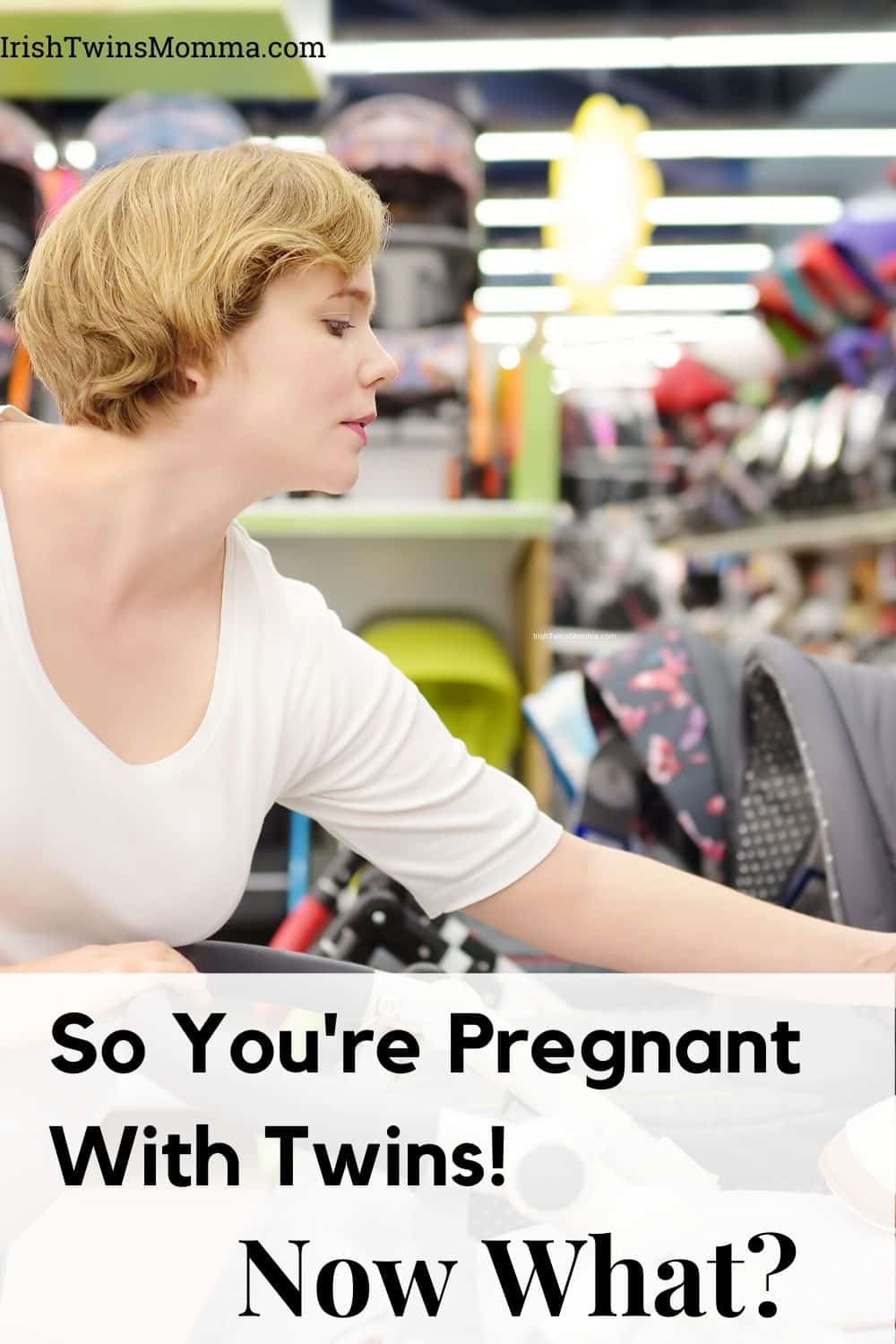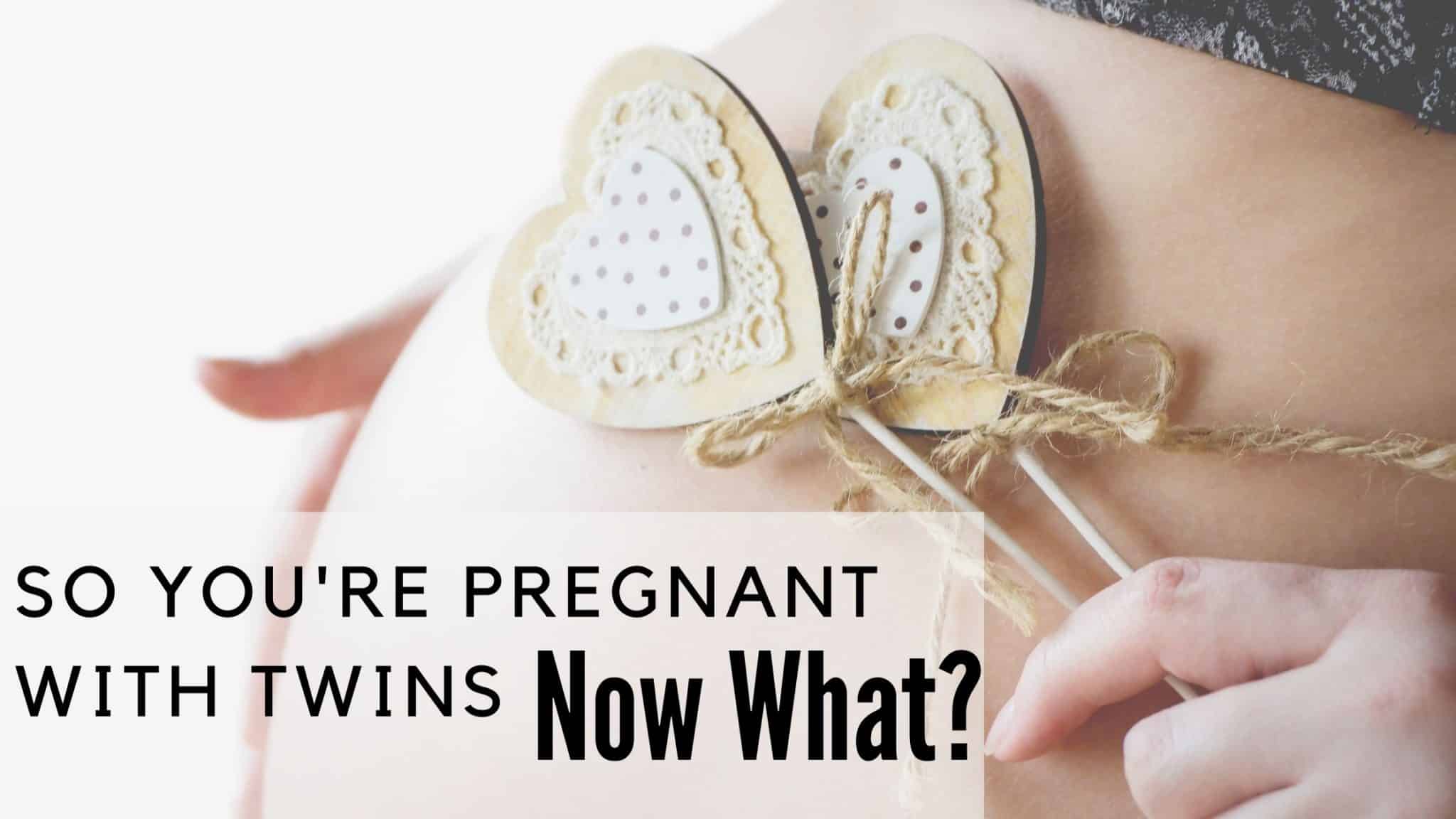This post contains affiliate links. If you click and buy, I may make a commission, at no cost to you. See my disclosure policy for more information.
Congrats – you’re pregnant with twins!
As a twin mom-to-be, you might feel a bit isolated in your experience. In reality, the twin birth rate has risen 70% since 1980 according to the National Center for Health Statistics. Still, it’s understandable if one of your first emotions is fear — “how will I take care of two babies?” and “can my body handle carrying two babies at once?” are common worries.
On top of that, your pregnancy experience will be different than that of someone who is pregnant with one baby, and some of the resources and advice available to parents of “singletons” simply don’t apply to a multiples pregnancy.
There are different types of twins, and it’s not as simple as fraternal vs. identical. Once you know whether your twins share a sac and/or placenta, you can consult with your doctor about the risks associated with your type of pregnancy.
Twin pregnancies are more closely monitored with frequent ultrasounds, prenatal tests, and non-stress tests — not to mention more visits to your obstetrician. Common complications in twin pregnancies include preeclampsia, gestational diabetes, and preterm labor. Talk to your doctor about these risks, how susceptible you are, and what your medical care will look like should you experience any of them (bed rest or modified bed rest are common!).
By default, a twin pregnancy is higher risk. If you are craving some peace of mind, focus on the things you can control, like the tips, tricks, and hacks I’ve laid out here. Below I break down a few topics that will contribute to your preparedness during your multiples pregnancy and as a first-time parent of twins.
Pregnancy Symptoms
When comparing a typical singleton pregnancy with a twin pregnancy, the chance that you’ll experience “morning” sickness (which can occur 24/7 or at any time of day) is considerably higher. Two babies mean more hormones coursing through your body — not necessarily twice as much, but enough that feelings of nausea can be significantly heightened.
This may cause a loss of appetite or aversions to food, and could even prevent you from keeping anything down. If you experience symptoms to this extreme, talk to your healthcare provider to ensure you’re still on track for a healthy twin pregnancy.
The toll that both hormones and expending extra energy on growing not one — but two! — humans will have on your body takes exhaustion to a new level. Expect to need extra sleep — your body will demand it, especially in those first few months and toward the end of your pregnancy.
It’s no surprise that your stomach will get much bigger than it would if you were pregnant with a singleton. Due to carrying more than one baby (and more than one placenta in many twin pregnancies), as well as extra fluids, you may gain more weight, feel extra aches and pains, become somewhat immobile, and experience excessive bloating and stretch marks.
Invest in products that contribute to the quality of your life and ultimately make your pregnancy more enjoyable, like a pregnancy pillow, belly band, comfortable shoes, and stretch mark oil that keeps your skin moisturized and hydrated (which, apart from genetics, gives you the best chance of preventing major changes to your skin).
Must-Have Gear
Expectant parents need to give extra thought to preparing for life with twins, especially during their first year. While parents of singletons and multiples often need the same items for their household, the latter should carefully consider which brands provide the most ease-of-use and convenience. For example, silicone changing pads are super easy to clean, and some swaddles grow with your baby so you don’t have to purchase multiple as your twins get bigger.
Double the products for twins:
You may also want to consider some products unique to twins such as this compact double bassinet or double nursing pillow. The beauty of Amazon and fast shipping is that you can wait to purchase some items until you know for sure if you need them or what your preference is.
Taking care of twins can be unpredictable and highly personal, and spending money or overloading your registry before learning from experience what you need may not be the best approach.
In fact, I recommend holding off on purchasing your double stroller until your twins are about 6 months old and you’ve had experience getting in and out of the house. In the meantime, purchase this affordable stroller frame that allows you to conveniently click in and out their car seats.
Hospital Bag
Like twin gear, what you pack in your hospital bag will be similar to that of a singleton pregnancy, but there are some important differences to consider. For a twin pregnancy, making it to 37 weeks is considered full-term.
Whether you’ll be delivering vaginally or via a cesarean section, your doctor will preemptively schedule your delivery at around 38 weeks in case you don’t go into labor before then. If one or both twins are breeched (which is common in twin pregnancies because they don’t have much room to move around), a c-section is often deemed the safest way to deliver — even if you go into labor naturally. It is very common to go into labor before 38 weeks if you’re pregnant with twins.
Another reason you may deliver early is if you or your twins experience any severe health complications, in which case an unplanned emergency c-section may take place. Of course, all of these scenarios will be discussed with your healthcare provider.
Mommy’s Hospital Bag
How and when you deliver your twins will help inform your hospital bag packing list. First and foremost, pack it early. The timing of your delivery is unpredictable. If you have a c-section, you will be in the hospital for several days to recover, so keep this in mind while packing clothing, underwear, and hygiene products. Many new moms swear by this convenient disposable underwear for postpartum bleeding, but this product is also extremely gentle on surgical wounds for those who undergo a c-section.
Common twin pregnancy incidences, like c-sections and premature labor, can actually delay breast milk supply (and should you choose to nurse and/or breastfeed, you’ll need to supply milk for two babies) — so don’t let it surprise you if you’re put on a hospital-grade pump very quickly after giving birth, and are advised to continue pumping during your stay.
Breastfeeding and/or pumping supplies:
Make sure you bring a hands-free pumping bra to the hospital. This is crucial, as holding the pump cups several times a day can be difficult and painful when you’re exhausted and recovering. If you plan to nurse, consider bringing your double breastfeeding pillow (linked above) or a boppy to the hospital. These can also be used for solo bottle-feeding (just prop twins in the pillows while bottle feeding for a more comfortable and convenient experience).
Coming Home Outfits:
When it comes to your newborn twins, make sure you pack premie-sized options for their going-home outfits; it’s impossible to know exactly how big they will be when you deliver.
Bonus tip: take more photos than you think you need to. Taking care of days-old twins is exhausting and it’s easy to give little to no thought to capturing those first moments of their precious lives — and your first moments as a twin mom!
There are many more topics to consider while pregnant with twins, such as whether they will spend time in the NICU if you have preterm labor, what your feeding plan will be (nursing, pumping, and/or formula), and implementing routines to ensure your newborn twins are on the same schedule, eating well, and getting enough rest. In the meantime, hopefully, the guidance and resources provided here will allow you to check off some major items and to-dos on your list as you prepare for both your twin pregnancy and future life with twin babies.
Sincerely,






Leave a Reply